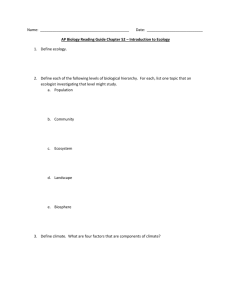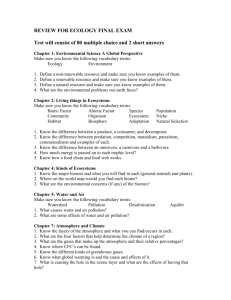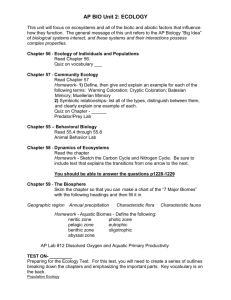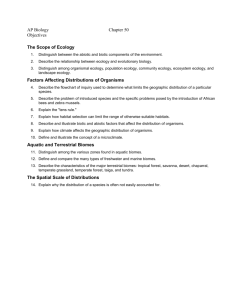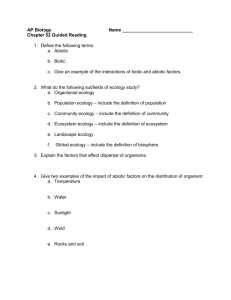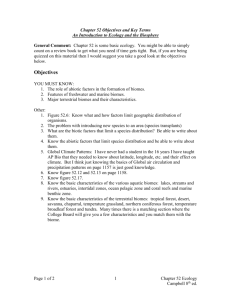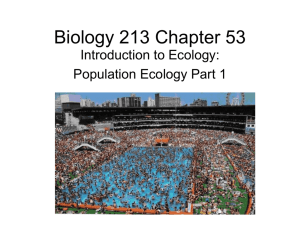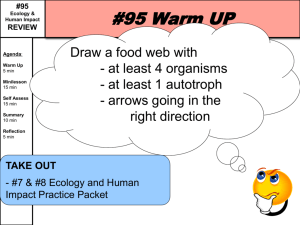Group ecology teaching project
advertisement
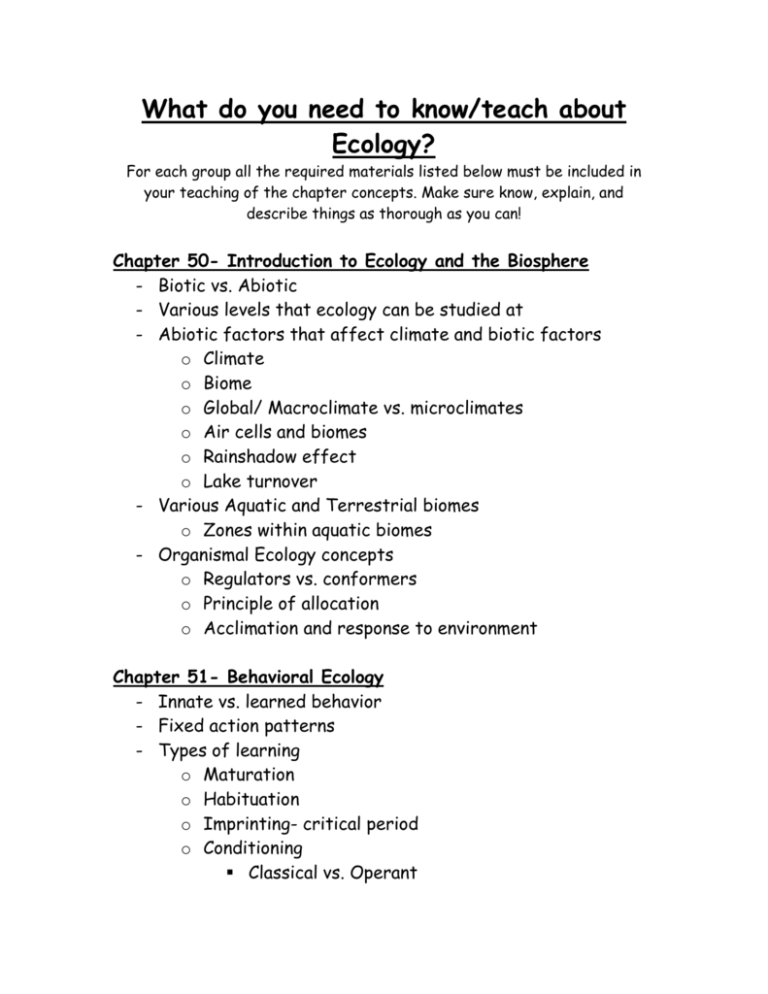
What do you need to know/teach about Ecology? For each group all the required materials listed below must be included in your teaching of the chapter concepts. Make sure know, explain, and describe things as thorough as you can! Chapter 50- Introduction to Ecology and the Biosphere - Biotic vs. Abiotic - Various levels that ecology can be studied at - Abiotic factors that affect climate and biotic factors o Climate o Biome o Global/ Macroclimate vs. microclimates o Air cells and biomes o Rainshadow effect o Lake turnover - Various Aquatic and Terrestrial biomes o Zones within aquatic biomes - Organismal Ecology concepts o Regulators vs. conformers o Principle of allocation o Acclimation and response to environment Chapter 51- Behavioral Ecology - Innate vs. learned behavior - Fixed action patterns - Types of learning o Maturation o Habituation o Imprinting- critical period o Conditioning Classical vs. Operant o Animal Cognition Kinesis vs. taxis o Competitive Behaviors Agonistic – dominance hierarchy Territory o Altruistic behavior Chapter 52- Population Ecology - Population - Characteristics o Density o Dispersion (3 ways) - Demography o Age structure o Sex ratio o Fecundity - Survivorship curves - Age structure pyramids - Life history traits o Tradeoffs between reproduction and survival Reproduction- semelparity vs. interoparity Number of offspring Age of reproduction - Population growth models o Exponential and logistic Must explain the mathematics behind the calculation of growth curves! o K vs. R selected populations - Density dependent and independent factors that effect population growth - Boom and Bust cycles in populations- predator and prey populations - Human growth (relate chapter to human growth) Chapter 53- Community Ecology - Interaction between populations o Interspecific interactions o Symbiosis o Predation Adaptation- predatory and prey (ex. Cryptic coloration, mimicry, etc) o Parasitism- endo and ectoparasites o Competition Competitive exclusion principle Niche- Fundamental and realized Resource partitioning o Commensalism o Mutualism - Keystone species- interdependence of organisms - Succession o Primary vs. Secondary Chapter 54- Ecosystems - Food chains and webs o All trophic levels- from producers to decomposers o Interconnectedness of organisms - Productivity in ecosystems- flow through of energy o Primary vs. secondary productivity o Biomass o Standing crop biomass o Ecological efficiency of ecosystems o Pyramids of productivity/ numbers/ energy - CYCYLES of matter in ecosystems o Water o Carbon o Nitrogen o Phosphorus


